Peace of Mind: How Meditation Supports Seniors and Their Caregivers



Aging gracefully is about more than just physical health—it’s about nurturing the mind and spirit as well. For seniors and their caregivers, the journey can be filled with both rewarding moments and significant challenges.
Meditation, a practice rooted in mindfulness and self-awareness, is emerging as a powerful tool to help both seniors and their caregivers find peace, resilience, and a renewed sense of well-being.
The Unique Challenges Facing Seniors and Caregivers
Seniors often face physical limitations, chronic pain, memory loss, or feelings of isolation. Caregivers, whether family members or professionals, juggle the emotional and physical demands of providing care, often neglecting their own well-being in the process. This dual burden can lead to stress, anxiety, and even burnout for both parties.
Meditation offers a simple, accessible way to address these challenges. It doesn’t require special equipment or prior experience—just a willingness to pause, breathe, and be present.
The Benefits of Meditation for Seniors
Meditation brings a host of benefits specifically tailored to the needs of older adults:
Reduced Stress and Anxiety: Regular meditation helps calm the mind, lowering stress hormones and promoting a sense of relaxation. This is especially important for seniors who may feel overwhelmed by health concerns or changes in their daily lives.
Improved Cognitive Function: Studies suggest that meditation can slow cognitive decline and may even help manage symptoms of Alzheimer’s or dementia. The practice increases activity in the hippocampus, the part of the brain responsible for memory, which can help seniors maintain mental sharpness longer.
Better Physical Health: Meditation has been linked to lower blood pressure, improved heart health, and a stronger immune system. For seniors dealing with chronic pain or illness, meditation can offer relief and a sense of control over their bodies.
Enhanced Emotional Well-Being: Meditation encourages positive thinking and emotional regulation, helping seniors cope with feelings of sadness, loneliness, or frustration. It fosters a sense of acceptance and peace, making daily life more enjoyable.
Meditation as a Lifeline for Caregivers
Caregivers are often the unsung heroes, yet the emotional toll of caregiving can be immense. Meditation provides caregivers with essential tools to manage their own well-being:
Stress Management: Mindfulness meditation helps caregivers step back from the constant demands of their role, reducing anxiety and preventing burnout. Even a few minutes each day can make a significant difference.
Emotional Resilience: Caregiving can trigger a rollercoaster of emotions. Meditation cultivates patience, compassion, and the ability to respond thoughtfully rather than react impulsively, leading to stronger relationships with those in their care.
Physical Health Benefits: Chronic stress can weaken the immune system and disrupt sleep. Meditation has been shown to improve sleep quality, lower blood pressure, and boost overall health for caregivers.
Community and Connection: Group meditation sessions or guided practices can help caregivers feel less isolated, providing a sense of shared experience and support.
See here for more on some of the challenges facing the care workforce.
Simple Ways to Start Meditating
Meditation doesn’t have to be complicated. Here are a few accessible techniques that seniors and caregivers can try:
Mindful Breathing: Sit comfortably, close your eyes, and focus on your breath. Inhale slowly, exhale gently. When your mind wanders, gently bring your attention back to your breath.
Guided Meditation: Listen to a recorded meditation or attend a group session. Guided meditations can be especially helpful for beginners or those who struggle to quiet their minds.
Loving-Kindness Meditation: Focus on sending kind thoughts to yourself and others. Repeat phrases like “May I be happy, may I be healthy,” and extend these wishes to your loved ones and those you care for.
Body Scan: Slowly bring attention to different parts of your body, noticing sensations without judgment. This technique can help release tension and promote relaxation.
Overcoming Common Barriers
It’s normal to feel hesitant about starting something new, especially if meditation seems unfamiliar. Seniors might worry about “doing it right,” while caregivers may feel they don’t have time for self-care. The key is to start small—just a few minutes a day—and to remember that there’s no right or wrong way to meditate.
Mental health might be harder for some seniors to talk about, especially if they were raised in a time when emotional struggles were seen as a sign of weakness or kept private. This stigma can make it challenging to introduce practices like meditation, which focus on inner awareness and emotional well-being. Reassure your loved one that meditation is simply a gentle tool for calming the mind and improving focus—and that it's just as important for mental health as exercise is for the body.
Conclusion
Meditation is more than a trend—it’s a lifeline for seniors and caregivers seeking balance, resilience, and joy in daily life. By embracing mindfulness, both groups can find greater peace, improved health, and deeper connections with themselves and each other.
At Clara Home Care, we help families find high quality, flexible home care by making it easy to directly employ a caregiver from our network of trusted professionals. Reach out to us today to learn how we can support your family's needs.
Aging gracefully is about more than just physical health—it’s about nurturing the mind and spirit as well. For seniors and their caregivers, the journey can be filled with both rewarding moments and significant challenges.
Meditation, a practice rooted in mindfulness and self-awareness, is emerging as a powerful tool to help both seniors and their caregivers find peace, resilience, and a renewed sense of well-being.
The Unique Challenges Facing Seniors and Caregivers
Seniors often face physical limitations, chronic pain, memory loss, or feelings of isolation. Caregivers, whether family members or professionals, juggle the emotional and physical demands of providing care, often neglecting their own well-being in the process. This dual burden can lead to stress, anxiety, and even burnout for both parties.
Meditation offers a simple, accessible way to address these challenges. It doesn’t require special equipment or prior experience—just a willingness to pause, breathe, and be present.
The Benefits of Meditation for Seniors
Meditation brings a host of benefits specifically tailored to the needs of older adults:
Reduced Stress and Anxiety: Regular meditation helps calm the mind, lowering stress hormones and promoting a sense of relaxation. This is especially important for seniors who may feel overwhelmed by health concerns or changes in their daily lives.
Improved Cognitive Function: Studies suggest that meditation can slow cognitive decline and may even help manage symptoms of Alzheimer’s or dementia. The practice increases activity in the hippocampus, the part of the brain responsible for memory, which can help seniors maintain mental sharpness longer.
Better Physical Health: Meditation has been linked to lower blood pressure, improved heart health, and a stronger immune system. For seniors dealing with chronic pain or illness, meditation can offer relief and a sense of control over their bodies.
Enhanced Emotional Well-Being: Meditation encourages positive thinking and emotional regulation, helping seniors cope with feelings of sadness, loneliness, or frustration. It fosters a sense of acceptance and peace, making daily life more enjoyable.
Meditation as a Lifeline for Caregivers
Caregivers are often the unsung heroes, yet the emotional toll of caregiving can be immense. Meditation provides caregivers with essential tools to manage their own well-being:
Stress Management: Mindfulness meditation helps caregivers step back from the constant demands of their role, reducing anxiety and preventing burnout. Even a few minutes each day can make a significant difference.
Emotional Resilience: Caregiving can trigger a rollercoaster of emotions. Meditation cultivates patience, compassion, and the ability to respond thoughtfully rather than react impulsively, leading to stronger relationships with those in their care.
Physical Health Benefits: Chronic stress can weaken the immune system and disrupt sleep. Meditation has been shown to improve sleep quality, lower blood pressure, and boost overall health for caregivers.
Community and Connection: Group meditation sessions or guided practices can help caregivers feel less isolated, providing a sense of shared experience and support.
See here for more on some of the challenges facing the care workforce.
Simple Ways to Start Meditating
Meditation doesn’t have to be complicated. Here are a few accessible techniques that seniors and caregivers can try:
Mindful Breathing: Sit comfortably, close your eyes, and focus on your breath. Inhale slowly, exhale gently. When your mind wanders, gently bring your attention back to your breath.
Guided Meditation: Listen to a recorded meditation or attend a group session. Guided meditations can be especially helpful for beginners or those who struggle to quiet their minds.
Loving-Kindness Meditation: Focus on sending kind thoughts to yourself and others. Repeat phrases like “May I be happy, may I be healthy,” and extend these wishes to your loved ones and those you care for.
Body Scan: Slowly bring attention to different parts of your body, noticing sensations without judgment. This technique can help release tension and promote relaxation.
Overcoming Common Barriers
It’s normal to feel hesitant about starting something new, especially if meditation seems unfamiliar. Seniors might worry about “doing it right,” while caregivers may feel they don’t have time for self-care. The key is to start small—just a few minutes a day—and to remember that there’s no right or wrong way to meditate.
Mental health might be harder for some seniors to talk about, especially if they were raised in a time when emotional struggles were seen as a sign of weakness or kept private. This stigma can make it challenging to introduce practices like meditation, which focus on inner awareness and emotional well-being. Reassure your loved one that meditation is simply a gentle tool for calming the mind and improving focus—and that it's just as important for mental health as exercise is for the body.
Conclusion
Meditation is more than a trend—it’s a lifeline for seniors and caregivers seeking balance, resilience, and joy in daily life. By embracing mindfulness, both groups can find greater peace, improved health, and deeper connections with themselves and each other.
At Clara Home Care, we help families find high quality, flexible home care by making it easy to directly employ a caregiver from our network of trusted professionals. Reach out to us today to learn how we can support your family's needs.
Aging gracefully is about more than just physical health—it’s about nurturing the mind and spirit as well. For seniors and their caregivers, the journey can be filled with both rewarding moments and significant challenges.
Meditation, a practice rooted in mindfulness and self-awareness, is emerging as a powerful tool to help both seniors and their caregivers find peace, resilience, and a renewed sense of well-being.
The Unique Challenges Facing Seniors and Caregivers
Seniors often face physical limitations, chronic pain, memory loss, or feelings of isolation. Caregivers, whether family members or professionals, juggle the emotional and physical demands of providing care, often neglecting their own well-being in the process. This dual burden can lead to stress, anxiety, and even burnout for both parties.
Meditation offers a simple, accessible way to address these challenges. It doesn’t require special equipment or prior experience—just a willingness to pause, breathe, and be present.
The Benefits of Meditation for Seniors
Meditation brings a host of benefits specifically tailored to the needs of older adults:
Reduced Stress and Anxiety: Regular meditation helps calm the mind, lowering stress hormones and promoting a sense of relaxation. This is especially important for seniors who may feel overwhelmed by health concerns or changes in their daily lives.
Improved Cognitive Function: Studies suggest that meditation can slow cognitive decline and may even help manage symptoms of Alzheimer’s or dementia. The practice increases activity in the hippocampus, the part of the brain responsible for memory, which can help seniors maintain mental sharpness longer.
Better Physical Health: Meditation has been linked to lower blood pressure, improved heart health, and a stronger immune system. For seniors dealing with chronic pain or illness, meditation can offer relief and a sense of control over their bodies.
Enhanced Emotional Well-Being: Meditation encourages positive thinking and emotional regulation, helping seniors cope with feelings of sadness, loneliness, or frustration. It fosters a sense of acceptance and peace, making daily life more enjoyable.
Meditation as a Lifeline for Caregivers
Caregivers are often the unsung heroes, yet the emotional toll of caregiving can be immense. Meditation provides caregivers with essential tools to manage their own well-being:
Stress Management: Mindfulness meditation helps caregivers step back from the constant demands of their role, reducing anxiety and preventing burnout. Even a few minutes each day can make a significant difference.
Emotional Resilience: Caregiving can trigger a rollercoaster of emotions. Meditation cultivates patience, compassion, and the ability to respond thoughtfully rather than react impulsively, leading to stronger relationships with those in their care.
Physical Health Benefits: Chronic stress can weaken the immune system and disrupt sleep. Meditation has been shown to improve sleep quality, lower blood pressure, and boost overall health for caregivers.
Community and Connection: Group meditation sessions or guided practices can help caregivers feel less isolated, providing a sense of shared experience and support.
See here for more on some of the challenges facing the care workforce.
Simple Ways to Start Meditating
Meditation doesn’t have to be complicated. Here are a few accessible techniques that seniors and caregivers can try:
Mindful Breathing: Sit comfortably, close your eyes, and focus on your breath. Inhale slowly, exhale gently. When your mind wanders, gently bring your attention back to your breath.
Guided Meditation: Listen to a recorded meditation or attend a group session. Guided meditations can be especially helpful for beginners or those who struggle to quiet their minds.
Loving-Kindness Meditation: Focus on sending kind thoughts to yourself and others. Repeat phrases like “May I be happy, may I be healthy,” and extend these wishes to your loved ones and those you care for.
Body Scan: Slowly bring attention to different parts of your body, noticing sensations without judgment. This technique can help release tension and promote relaxation.
Overcoming Common Barriers
It’s normal to feel hesitant about starting something new, especially if meditation seems unfamiliar. Seniors might worry about “doing it right,” while caregivers may feel they don’t have time for self-care. The key is to start small—just a few minutes a day—and to remember that there’s no right or wrong way to meditate.
Mental health might be harder for some seniors to talk about, especially if they were raised in a time when emotional struggles were seen as a sign of weakness or kept private. This stigma can make it challenging to introduce practices like meditation, which focus on inner awareness and emotional well-being. Reassure your loved one that meditation is simply a gentle tool for calming the mind and improving focus—and that it's just as important for mental health as exercise is for the body.
Conclusion
Meditation is more than a trend—it’s a lifeline for seniors and caregivers seeking balance, resilience, and joy in daily life. By embracing mindfulness, both groups can find greater peace, improved health, and deeper connections with themselves and each other.
At Clara Home Care, we help families find high quality, flexible home care by making it easy to directly employ a caregiver from our network of trusted professionals. Reach out to us today to learn how we can support your family's needs.
More about senior health
More about senior health


Osteoporosis in Older Adults: What Every Caregiver Should Know



Clara Editorial Team


Why Aging in Place Is the New Reality for Most Baby Boomers



Clara Editorial Team


Warning Signs Of Vision Loss In Seniors—And What To Do Next



Clara Editorial Team


“They Were Talking to Each Other, But Not to Me”: Understanding the Patient Experience During Hospital-to-SNF Transitions



Clara Editorial Team


Talking About Therapy: How to Normalize Mental Health Support with Aging Parents



Lowrie Hilladakis
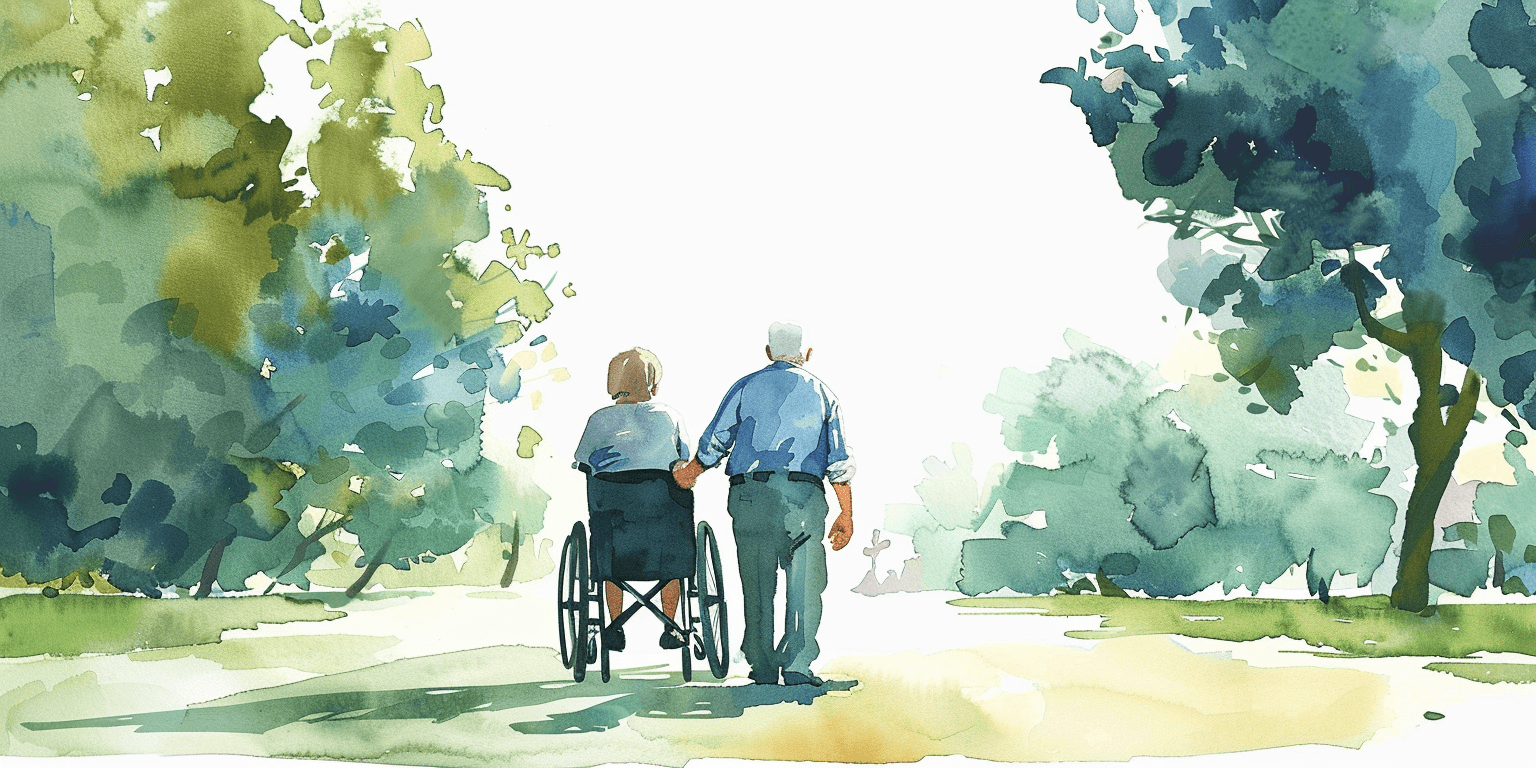

Stroke Awareness Month: Navigating Recovery After the Crisis



Clara Editorial Team
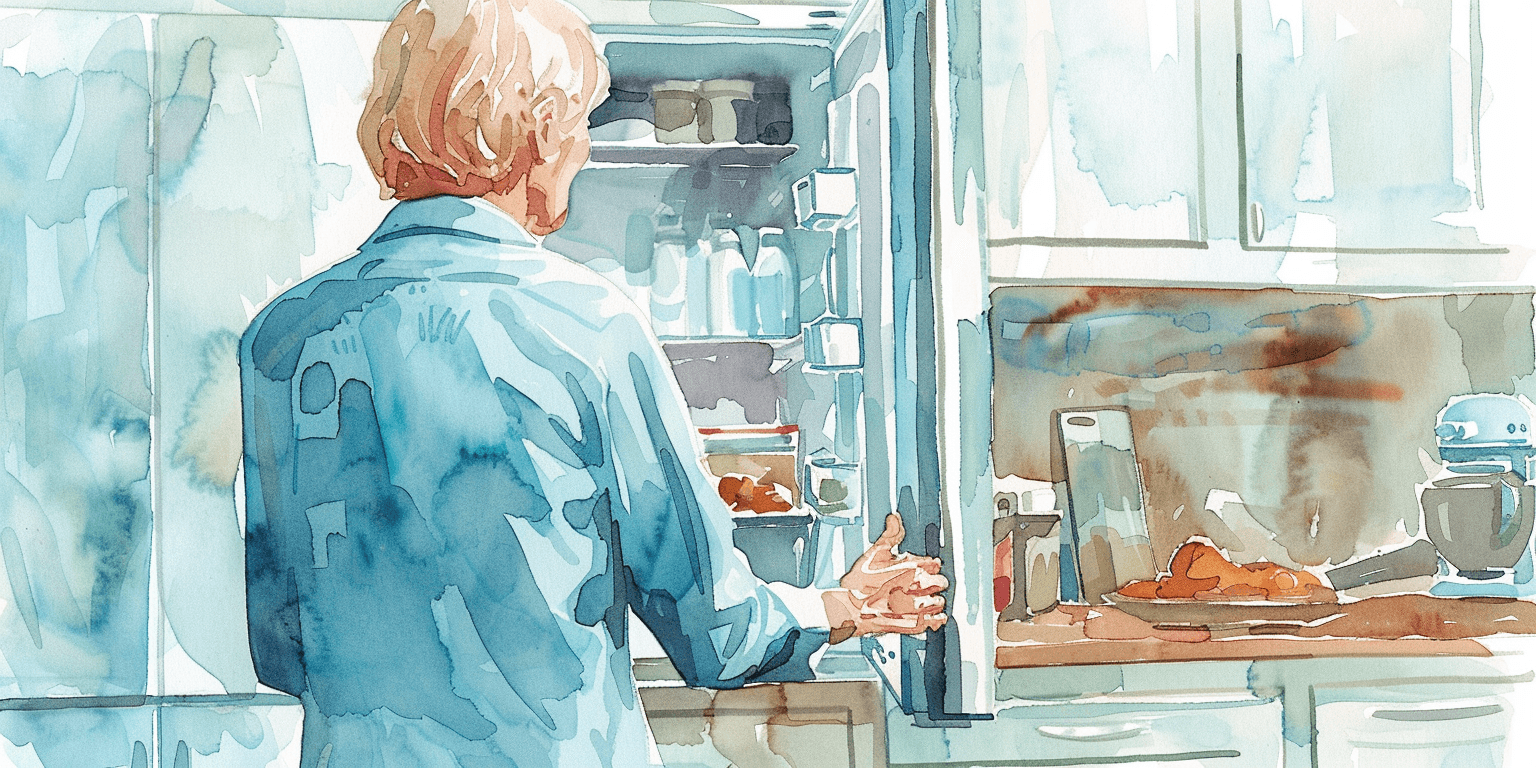

Digestive Health Tips for Seniors: Why It’s Often Overlooked



Clara Editorial Team
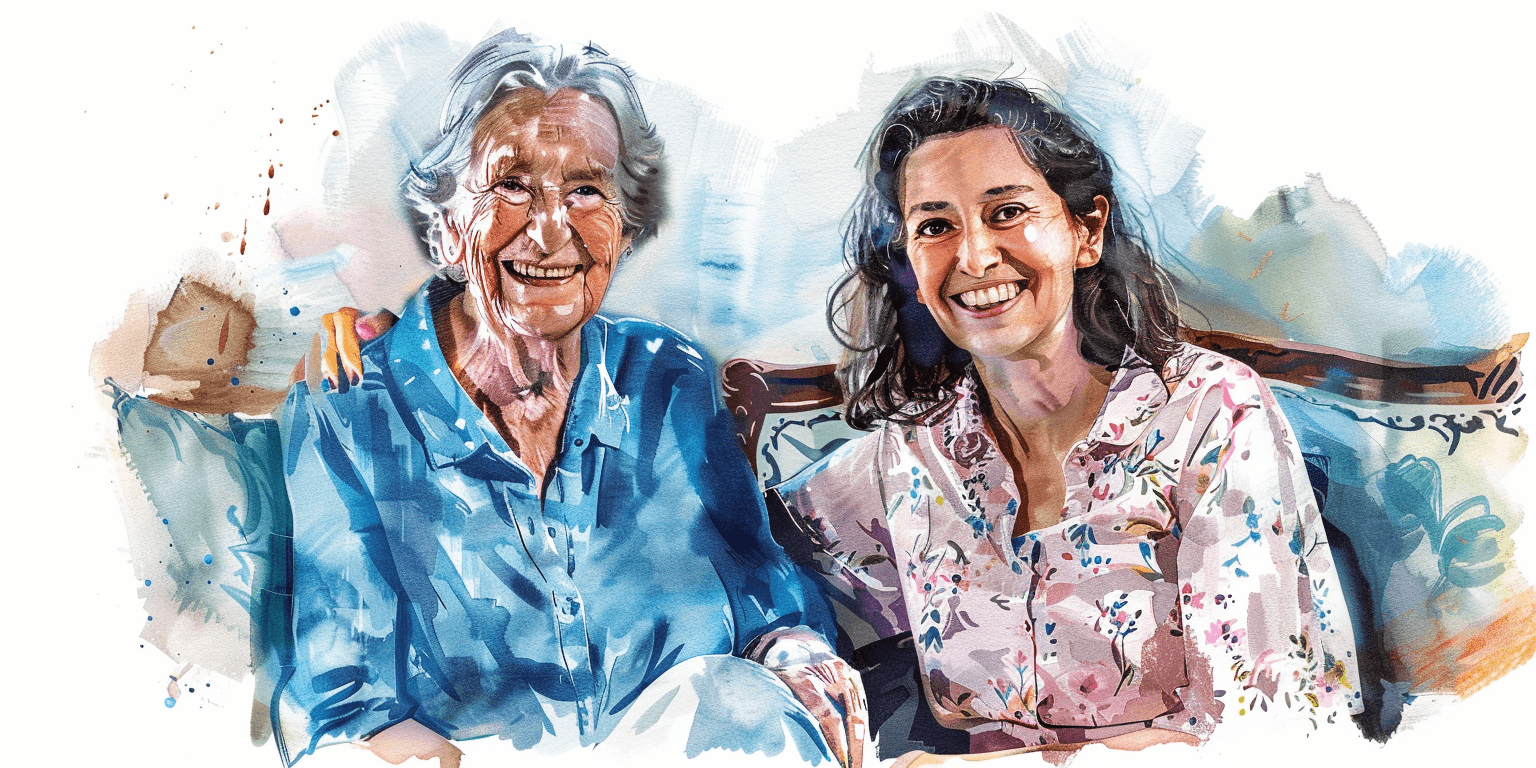

What Is A Care Manager?



Camille Christie
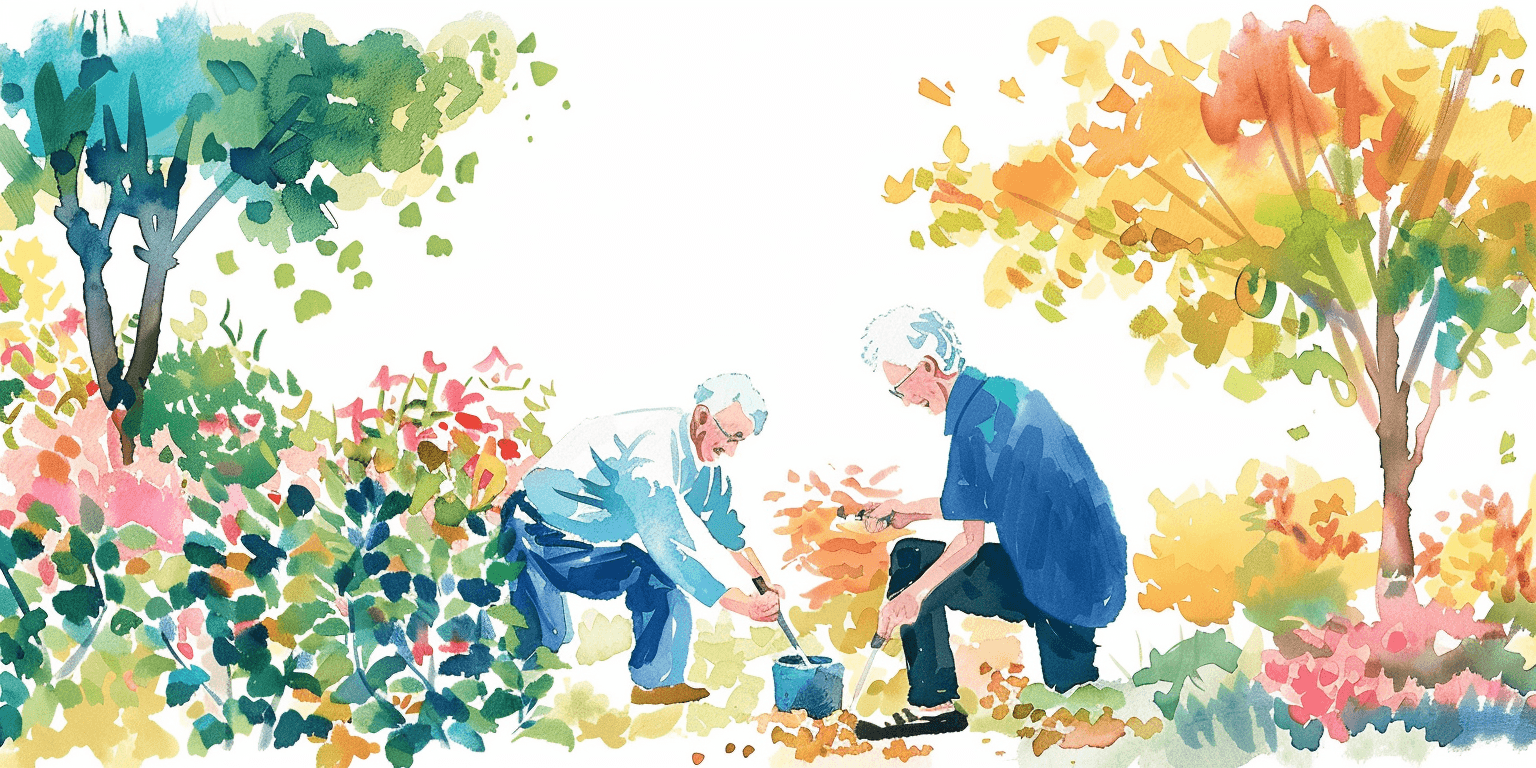

The Physical and Mental Health Benefits of Gardening for Seniors



Quynh Thi Pham, OTS
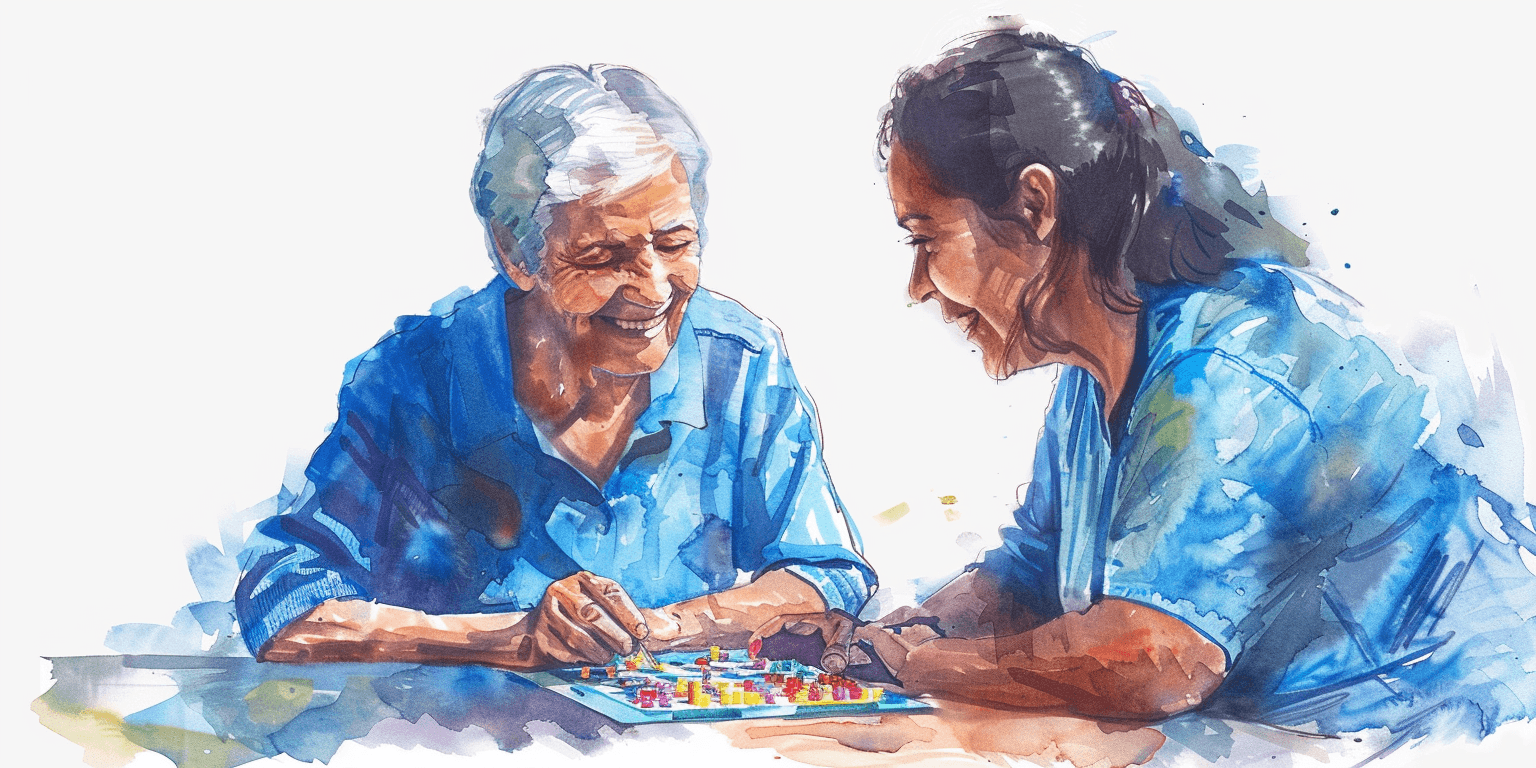

Stay Sharp, Stay Happy: Fun ways to keep our mind active as we age!



Neelam Dabholkar, MBA
GEt started for free
Better care starts with Clara.
Find, hire, and pay top-notch caregivers without the headache for a price that fits your budget.

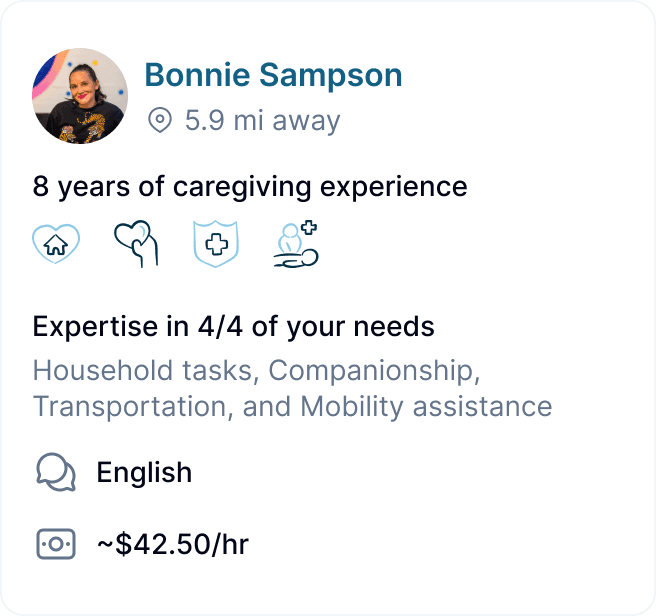
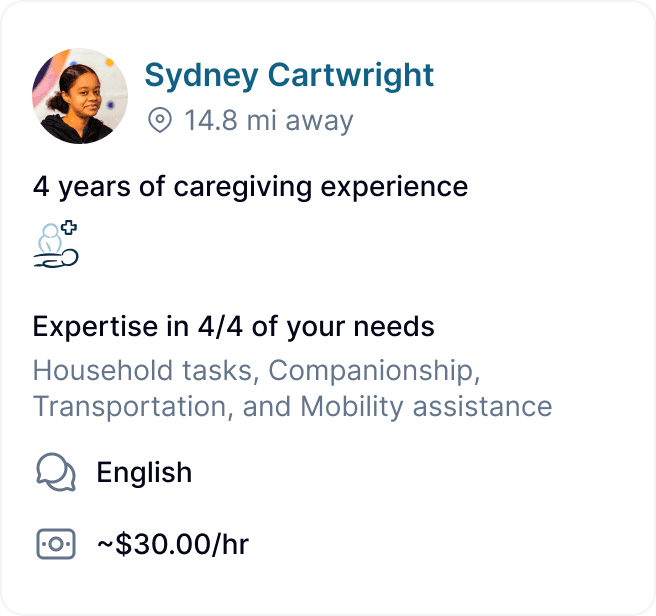
GEt started for free
Better care starts with Clara.
Find, hire, and pay top-notch caregivers without the headache for a price that fits your budget.



GEt started for free
Better care starts with Clara.
Find, hire, and pay top-notch caregivers without the headache for a price that fits your budget.

